Lishan Guesthouse (梨山賓館) is scheduled to be reopened in July for a trial operation, the Tourism Bureau said yesterday.
The guesthouse was used exclusively by the late Chiang Kai-shek (蔣介石) and it later served as accommodation for those on hiking tours in the Lishan area.
Chu Chuen-wei (朱傳緯), director of Tri-Mountain National Scenic Area Administration, said the guesthouse began operations in 1971. It is one of three buildings in the nation featuring the architectural style of a Chinese palace.
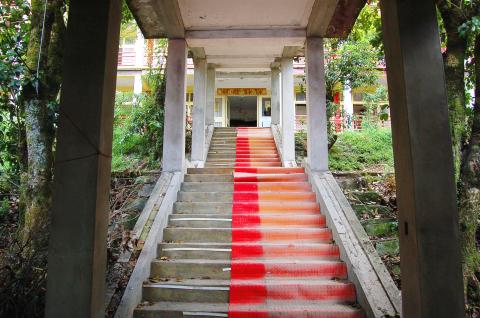
PHOTO: TSENG HUNG-JU, TAIPEI TIMES
He said the number of tourists staying at the guesthouse dropped drastically after central Taiwan was devastated by the 921 Earthquake in 1999 and it suspended operations in 2004 after being damaged by mudflows triggered by Typhoon Mindulle.
Chu said the bureau spent two and half years renovating the guesthouse at a cost of about NT$100 million.
He said the bureau had decided to outsource the operation of the guesthouse to a private contractor under the operate-transfer model.
The number of tourists in the Lishan area has grown steadily from about 216,623 in 2009, 306,618 in 2010 to 524,746 last year, Chu said.
Based on the contractor’s plans, the 110 rooms that originally existed will be consolidated into 98 guest rooms. The facility will contain four parts — the lobby, the main building, the house used by Chiang and the secondary building.
Specifically, the house used by Chiang will be renovated into a suite 92.5m2 in size, containing a living room and bedroom. It will cost NT$15,000 per night.
“The furniture inside the Chiang’s guesthouse was destroyed by the mudflow,” said Liu Jui-ching (劉瑞卿), a section chief with the bureau. “The only thing left is the fireplace, which still works.”
The contractor said that a regular room in Lishan Guesthouse will cost NT5,000 per night, adding that customers would receive a 50 percent discount on weekdays and a 30 percent discount on national holidays during the trial period.
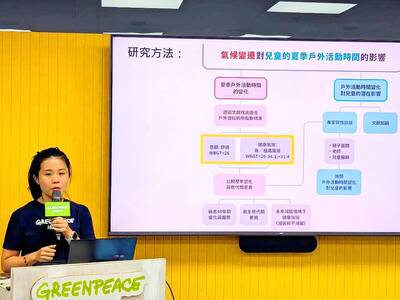
The government should improve children’s outdoor spaces and accelerate carbon reduction programs, as the risk of heat-related injury due to high summer temperatures rises each year, Greenpeace told a news conference yesterday. Greenpeace examined summer temperatures in Taipei, New Taipei City, Taoyuan, Hsinchu City, Taichung, Tainan and Kaohsiung to determine the effects of high temperatures and climate change on children’s outdoor activities, citing data garnered by China Medical University, which defines a wet-bulb globe temperature (WBGT) of 29°C or higher as posing the risk of heat-related injury. According to the Central Weather Administration, WBGT, commonly referred to as the heat index, estimates
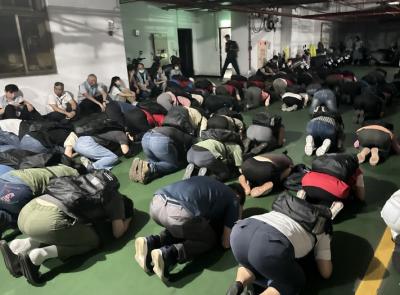
Taipei and other northern cities are to host air-raid drills from 1:30pm to 2pm tomorrow as part of urban resilience drills held alongside the Han Kuang exercises, Taiwan’s largest annual military exercises. Taipei, New Taipei City, Keelung, Taoyuan, Yilan County, Hsinchu City and Hsinchu County are to hold the annual Wanan air defense exercise tomorrow, following similar drills held in central and southern Taiwan yesterday and today respectively. The Taipei Mass Rapid Transit (MRT) and Maokong Gondola are to run as usual, although stations and passenger parking lots would have an “entry only, no exit” policy once air raid sirens sound, Taipei
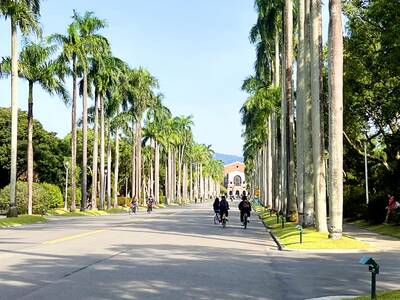
Taipei placed 14th in the Quacquarelli Symonds (QS) Best Student Cities 2026 list, its highest ever, according to results released yesterday. With an overall score of 89.1, the city climbed 12 places from the previous year, surpassing its previous best ranking of 17th in 2019. Taipei is “one of Asia’s leading higher-education hubs,” with strong employer activity scores and students “enjoying their experience of the city and often keen to stay after graduation,” a QS staff writer said. In addition to Taipei, Hsinchu (71st), Tainan (92nd), Taichung (113th) and Taoyuan (130th) also made QS’ list of the top 150 student cities. Hsinchu showed the
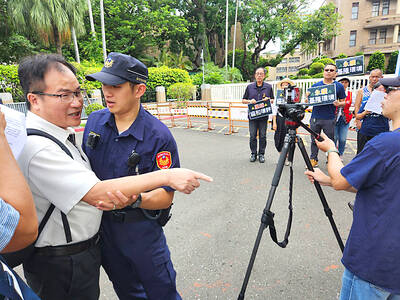
Environmental groups yesterday filed an appeal with the Executive Yuan, seeking to revoke the environmental impact assessment (EIA) conditionally approved in February for the Hsieh-ho Power Plant’s planned fourth liquefied natural gas (LNG) receiving station off the coast of Keelung. The appeal was filed jointly by the Protect Waimushan Seashore Action Group, the Wild at Heart Legal Defense Association and the Keelung City Taiwan Head Cultural Association, which together held a news conference outside the Executive Yuan in Taipei. Explaining the reasons for the appeal, Wang Hsing-chih (王醒之) of the Protect Waimushan Seashore Action Group said that the EIA failed to address